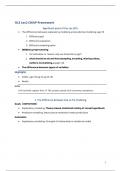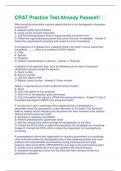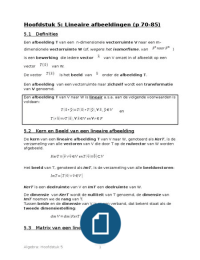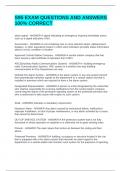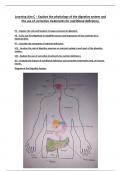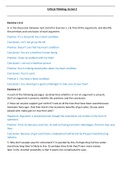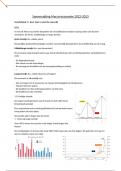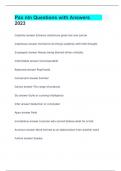by William Lutz
William Lutz has spent much of his professional life examining the words used in
law, politics, and business to discover how words are used to mislead without
lying. He has also written extensively to try to educate people about this
misleading language, which has been called ‘double-speak.” Lutz defines
doublespeak as “language that pretends to communicate, but really doesn’t. It is
language that makes the bad seem good, the negative appear positive, the
unpleasant appear attractive or at least tolerable” (The New Doublespeak, 1997).
In this excerpt from his book Doublespeak (1990), Lutz describes one type of
doublespeak – “weasel words” – and shows how different types of weasel words
are used by advertisers to encourage people to buy products.
1 One problem advertisers have when they try to convince you that the product
they are pushing is really something different from other, similar products is that
their claims are subject to some laws. Not a lot of laws, but there are some to
prevent fraudulent or untruthful claims in advertising. Even during the happy
years of nonregulation under President Ronald Reagan, the Federal Trade
Commission did crack down on the more blatant 1 abuses in advertising claims.
Generally speaking, advertisers have to be careful in what they say in their ads, in
the claims they make for the products they advertise. Parity claims 2 are safe
because they are legal and supported by a number of court decisions. But
beyond parity claims there are weasel words.
2 Advertisers use weasel words to appear to be making a claim for a product when
in fact they are making no claim at all. Weasel words get their name from the
way weasels eat the eggs they find in nests of other animals. A weasel will make
a small hole in the egg, suck out the insides, then place the egg back in the nest.
Only when the egg is examined closely is it found to be hollow. That’s the way it
is with weasel words in advertising: Examine weasel words closely and you’ll find
that they are as hollow as any egg sucked by a weasel. Weasel words appear to
say one thing when in fact they say the opposite or nothing at all. “Help” – The
Number One Weasel Word
1 blatant: obvious
2 parity claims: claiming a product is equal to other similar products
1
, 3 The biggest weasel word used in advertising doublespeak is “help.” Now, “help”
only means to aid or assist, nothing more. It does not mean to conquer, stop,
eliminate, end, solve, heal, cure, or anything else. But once the ad says “help,” it
can say just about anything after that because “help” qualifies 3 everything
coming after it. The trick is that the claim that comes after the weasel words is
usually so strong and so dramatic that you forget the word “help” and
concentrate only on the dramatic claim. You need to read into the ad a message
that the ad does not contain. More importantly, the advertiser is not responsible
for the claim that you read into the ad, even though the advertiser wrote the ad
so you would read the claim into it.
4 The next time you see an ad for a cold medicine that promises that it “helps
relieve cold symptoms fast,” don’t rush out to buy it. Ask yourself what this claim
is really saying. Remember, “helps” means only that the medicine will aid or
assist. What will it aid or assist in doing? Why, “relieve” your cold “symptoms.”
Relieve only means to ease, alleviate, or mitigate 4, not to stop, end, or cure. Nor
does the claim say how much relieving this medicine will do. Nowhere does this
ad claim it will do anything at all. The ad only claims that it will aid in relieving
(not curing) your cold symptoms, which are probably a runny nose, watery eyes,
and a headache. In other words, this medicine probably contains a standard
decongestant and some aspirin. By the way, what does “fast” mean? Ten
minutes, one hour, one day? What is fast to one person can be very slow to
another. Fast is another weasel word.
5 Ad claims using “help” are among the most popular ads. One says, “Helps keep
you young looking,” but then a lot of things will help keep you young looking,
including exercise, rest, good nutrition, and a facelift. More importantly, this ad
doesn’t say the product will keep you young, only “ young looking .” Someone
may look young to one person and old to another.
6 A toothpaste ad says, “Helps prevent cavities,” but it doesn’t say it will actually
prevent cavities. A liquid cleaner ad says, “Helps keep your home germ free,” but
it doesn’t say it actually kills germs, nor does it even specify which germs it might
kill.
7 “Help” is such a useful weasel word that it is often combined with other action-
verb weasel words such as “fight” and “control.” Consider the claim, “Helps
control dandruff symptoms with regular use.” What does it really say? It will
assist in controlling (not eliminating, stopping, ending, or curing) the symptoms
of dandruff, not the cause of the dandruff or the dandruff itself. What are the
symptoms of dandruff? The ad deliberately leaves that undefined, but assume
3 qualifies: limits
4 mitigate: to make less severe
2

